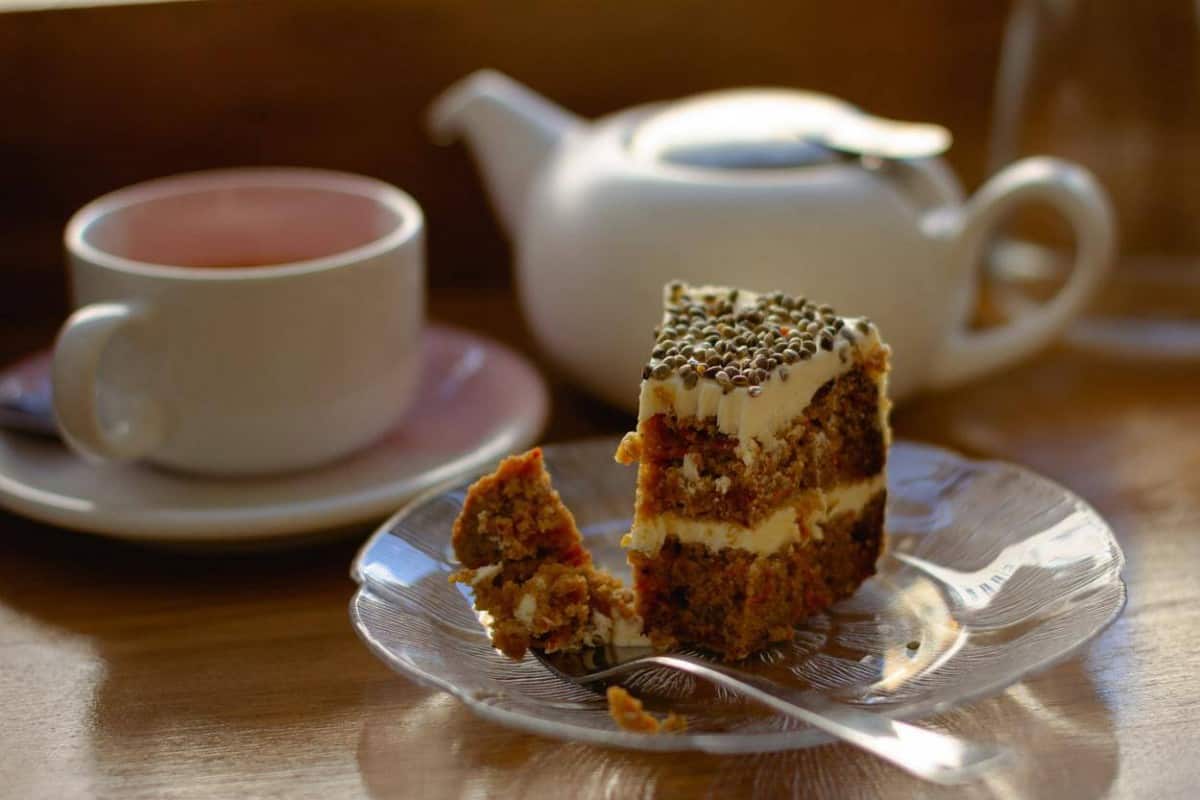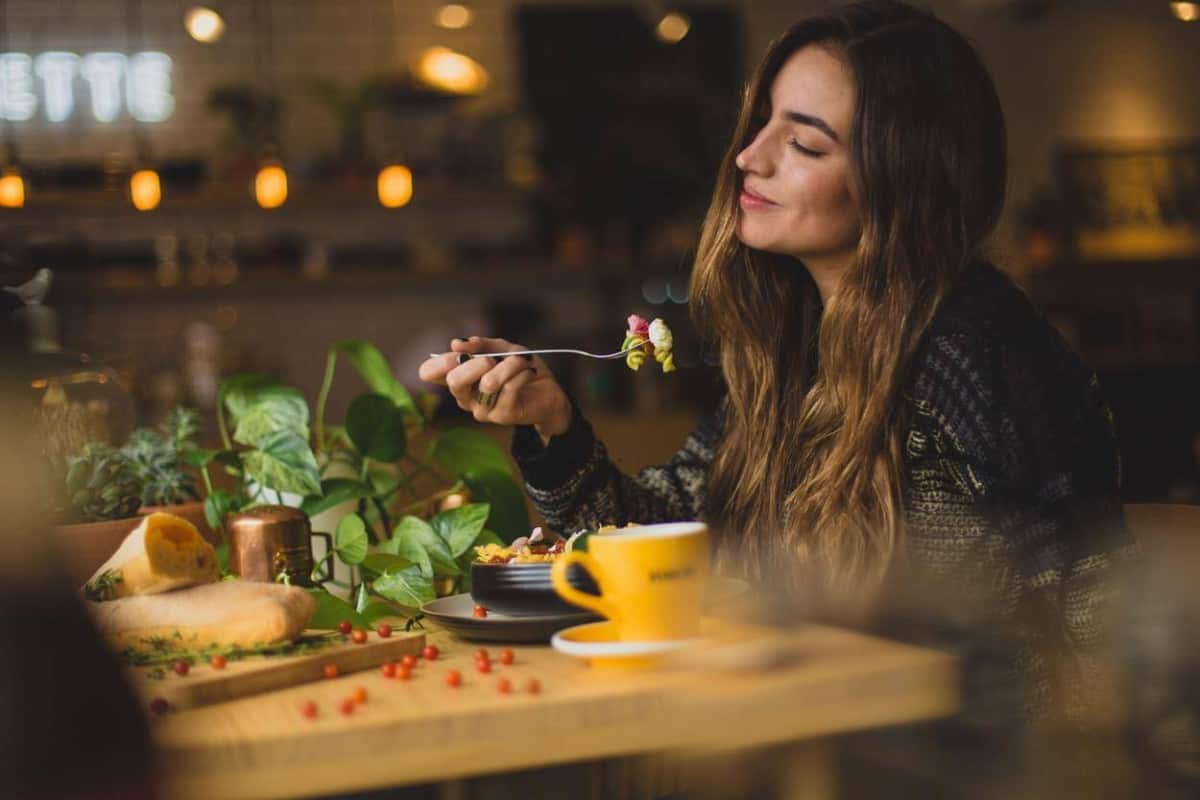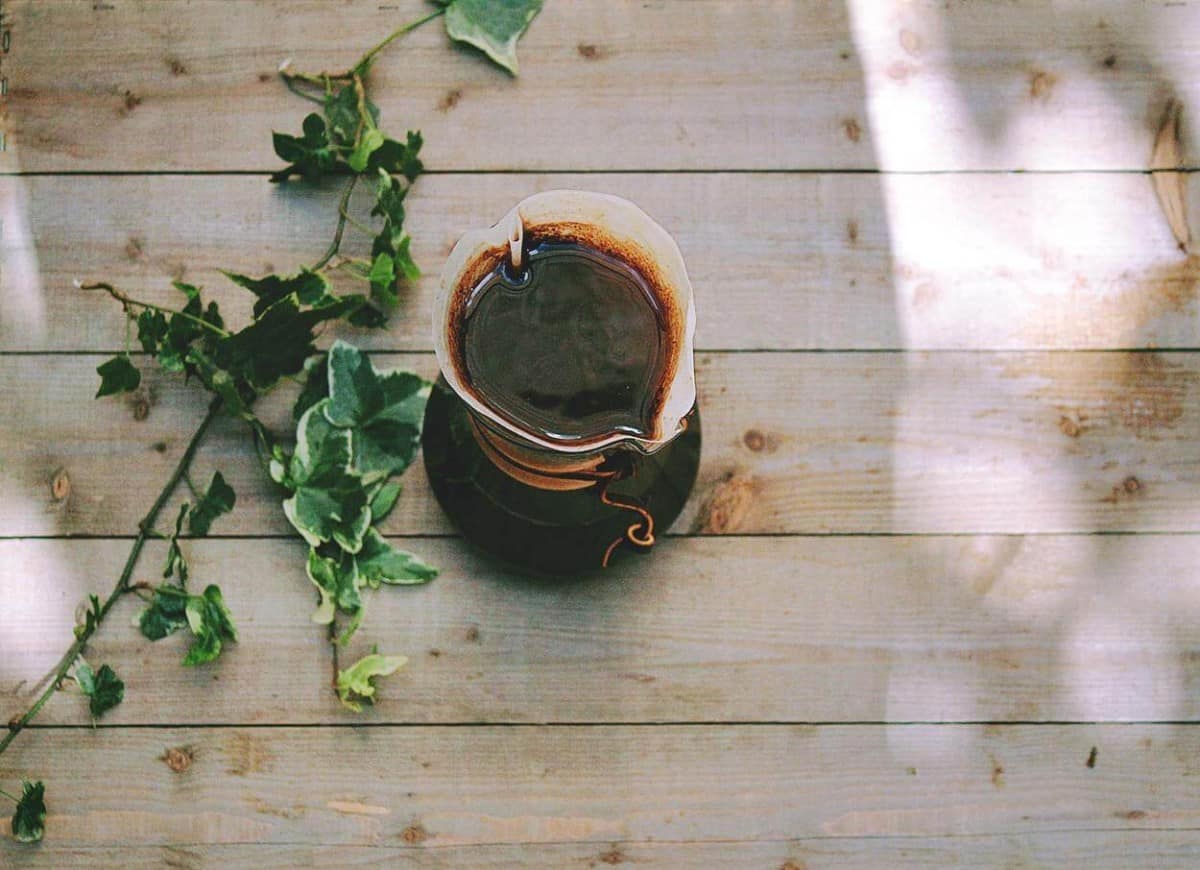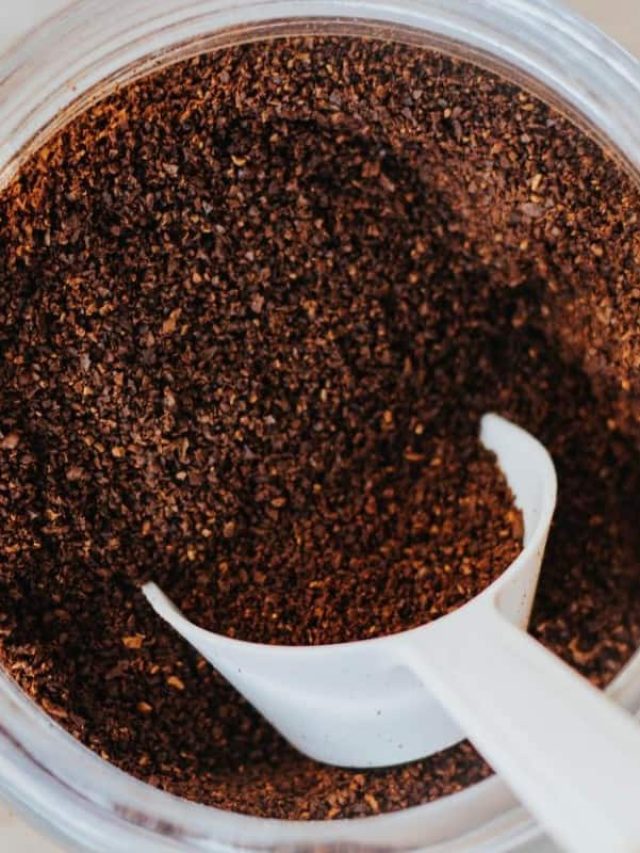If you ask thousands of coffee lovers about the thing they like most about the drink, most of them will select the flavor as the most appetizing factor.
From earthy tones to sweet fruity flavors, coffee exhibits a spectacular spectrum of flavor and aroma experiences for the drinkers. Apart from the boosting effects offered by coffee, people tend to choose the drink for its incredible flavor and high-quality texture.
Nowadays, different flavors are incorporated within the coffee beans to produce a different variety of tastes. However, the coffee flavor still reigns above the other flavored varieties due to its rich properties.
Many people may wonder whether the coffee flavoring contains caffeine or not since it can be produced from other sources as well.
So, is coffee extract real coffee?
Coffee extract is made by soaking ground coffee in alcohol such as vodka or ethanol. The liquid left behind after the process can be used for flavoring and baking. The coffee extract contains caffeine as well, although the content is relatively lower than a regular cup of coffee.
The following sections offer an in-depth explanation of the topic so continue your reading.
Is Coffee Flavor and Flavored Coffee the Same?
Coffee flavor and flavored coffee are not the same. Coffee flavor is the perceived taste reminiscent of a cup of coffee that can be put in foods like cake and ice cream, meanwhile flavored coffee is a cup of coffee with an added taste of a different ingredient like vanilla or cinnamon.
Coffee flavor is the combined sensation of its taste and aroma perceived through smell and taste buds.
It is a complex fruit composed of more than 800 natural aromatic compounds that contribute to the generation of its flavor. Coffee’s flavor is distinguished from its texture, acidity, aroma, bitterness, and sweetness.
An example of a product that is coffee flavored is coffee-flavored milk and you can read about it here if you’re interested.
On the other hand, flavored coffee is coffee that has an additional flavor or natural oils from ingredients, such as cocoa beans, cinnamon, cloves, nuts, berries, and so on added to it. So, do not confuse coffee flavor and flavored coffee.
What’s in Coffee Flavoring?
Natural coffee flavor is usually made from coffee extract.
It is a concentrated liquid that is mainly made of coffee beans combined with a solvent. Alcohol, propylene glycol, fractionated vegetable oils, and food-safe glycerin are commonly used as solvents. The solvent helps to bind the flavor compounds to the beans.
On the other hand, artificial coffee flavor is produced chemically. There is no coffee in it.
The chemicals are processed in a particular method that gives the desired taste. Some natural ingredients such as chicory root, dandelion root, garlic, dates, and figs are also used to produce the flavor. When these ingredients are roasted and combined, they taste similar to coffee.
Does Coffee-Flavored Cake Have Caffeine?

Usually, coffee-flavored cakes do have caffeine as the coffee extract is mostly used to bake coffee-flavored cakes. Besides, baking cake with coffee does not eliminate the caffeine in it.
However, if natural ingredients other than coffee are used to produce the coffee flavor of the cake, then the cake may or may not contain caffeine, as it depends on the constituents present in the ingredients.
Caffeine has a crystalline structure like sugar. It has a high boiling point and hence it remains stable even at high temperatures.
Consequently, when we bake the cake with coffee as an ingredient, though the water with it does cook out, the caffeine stays in it. Baking makes the caffeine more concentrated as the water evaporates out. However, this does not make the effect of the caffeine stronger.
Are Coffee Extract and Coffee Flavoring the Same Thing?
The coffee extract itself is a flavoring so naturally, they are the same thing. It is the concentrated liquid form of coffee. However, as explained earlier, coffee flavoring is not necessarily produced from coffee beans all the time.
Coffee extract is obtained from a mixture of oil from coarsely crushed coffee beans, combined with a solvent. The process involves pressure, distillation, and treatment with alcohol.
Usually, Ethyl alcohol and vodka are used to attach the flavoring oils to the beans which produce a strong, longer-lasting essence of the coffee. No additives are used to obtain a pure extract.
Then again, flavoring can be made from various other extracts or natural ingredients, which when mixed and processed in a particular formula tastes similar to coffee.
Does Food with Coffee Flavors Have Caffeine?
Food with coffee flavors usually has caffeine in them as they are mostly made from real coffee or coffee extract. But, if the flavor is made artificially from ingredients other than coffee, then the food will most likely be caffeine-free.
Thus, this depends on what kind of coffee flavor has been used in the food. Besides, other components in the food may also determine its caffeine content.
To determine whether a food is decaf or caffeinated, the following three sources of coffee flavoring must be considered: –
- Natural flavoring: Natural coffee flavoring is made from coffee beans itself, and hence it contains caffeine.
- Artificial flavoring: Artificially produced flavoring is produced chemically with no actual coffee in it. Hence, there is likely no caffeine. Nevertheless, the foods may contain other ingredients that could possibly contain caffeine-extract. Therefore, it is necessary to take a closer look at the ingredients of the food.
- Flavoring from natural ingredients: Such coffee flavoring is made from natural ingredients other than coffee beans. These are such as dates, figs, garlic, etc., which don’t contain caffeine. Hence, food made with such coffee flavoring is caffeine-free.
What Is The Caffeine Content of Some Coffee Flavored Food?
No matter what’s the caffeine source for the coffee flavoring, nowadays a variety of caffeine-infused food is marketed and available for consumption.
Some of the popular food items include:
| Coffee Flavored Food Item | Caffeine content |
| Haagen Daz Coffee Ice Cream | 60 mg |
| Clif Energy Bar | 50 mg |
| Sunkist Orange Soda | 41 mg |
| Dannon All-Natural Coffee Yoghurt | 30 mg |
| Hot Chocolate | 20 mg |
| Tiramisu Cake | 50 mg |
| Vitamin Water Energy | 50 mg |
What Do We Use Coffee Flavoring For?
Coffee flavoring is used in many recipes at homes and cafes. Starting from baked goods such as cakes and biscuits to desserts and cocktails, coffee flavor is used everywhere. In fact, various coffee flavor syrups are easily available for purchase.
Coffee syrups contain a small amount of caffeine (around 14 mg) that would be barely noticeable, especially if you are a regular coffee drinker. However, popular brand Torani’s coffee syrups do not contain caffeine at all. When syrups are made with artificial flavoring, they usually do not contain any caffeine.
Below are some awesome ways of using coffee flavoring:
- With iced lattes and hot coffee drinks for an extra kick of flavor
- Preparation of delicious dessert sauce
- Adding a drizzle of coffee flavor syrup with hot chocolate
- Waffles with coffee flavor syrup for breakfast
- Coffee flavor syrups with cocktails like espresso and martini boost the flavor even more.
- Coffee flavorings go excellent with special drinks like flavourful teas and lemonades
- Making coffee-flavored ice creams, cakes, and cookies
- Powdered coffee can be used as cake icing, which not only enhances the taste but also enhances the overall presentation of the cake
- Making coffee pancakes
Is Coffee Flavoring Healthy?

Coffee flavoring, whether natural or artificial, has no significant nutritional value, therefore, cannot be considered healthy. It contains no sugar, fat, or any other nutrients and therefore, has no health benefits.
Besides, coffee flavorings are gluten-free. Hence, they are not unhealthy either, as long as consumed in moderate amounts.
Sometimes the solvent contained within has an irritant effect when in direct and prolonged contact with eyes, mucous membranes, and skin.
Besides, the strong smell of the chemicals and solvents to the flavor syrup carries an increased risk for respiratory infection. Therefore, the consumption of large amounts can be toxic. It can also have long-term negative health effects such as lung cancer on employees working with these chemicals.
Many companies use cheap artificial flavored syrups and fragrances to mask the bad natural flavor of poor-quality coffee beans. These sugary chemicals such as corn syrup or high fructose corn syrup have adverse health effects on consumers.
Besides, these syrups also consist of preservatives like potassium sorbate and sodium benzoate, which act as precursors to carcinogens and hence are hazardous to health when consumed in high doses.
Bottomline
Simply put, coffee flavorings do contain caffeine. Most of the time the flavoring is extracted from coffee beans and thus the caffeine content remains moderate in them.
For commercial purposes, nowadays, coffee flavorings are synthetically manufactured which isn’t as healthy as the natural alternative. This type of flavoring doesn’t have caffeine in them.
Last, of all, the flavoring can also be extracted from other natural ingredients that give a similar taste and texture. These coffee alternatives are generally considered to be herbal coffee and serve high health benefits.
Other Articles
- Does Coffee Frappe Have Caffeine? (Detailed)
- Does Caffeine Fasten Metabolism? (Detailed Explanation)
- Caffeine Headaches (Causes and Remedies)
Contents
- 1 Is Coffee Flavor and Flavored Coffee the Same?
- 2 What’s in Coffee Flavoring?
- 3 Does Coffee-Flavored Cake Have Caffeine?
- 4 Are Coffee Extract and Coffee Flavoring the Same Thing?
- 5 Does Food with Coffee Flavors Have Caffeine?
- 6 What Is The Caffeine Content of Some Coffee Flavored Food?
- 7 What Do We Use Coffee Flavoring For?
- 8 Is Coffee Flavoring Healthy?
- 9 Bottomline
- 10 Other Articles


